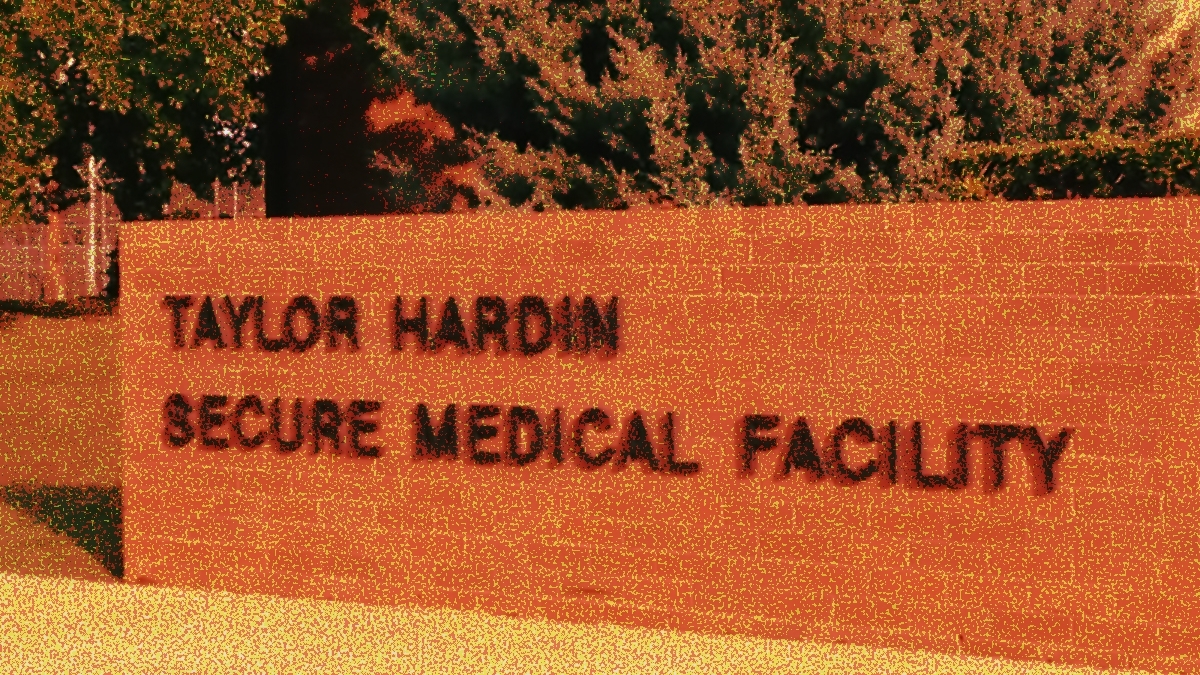The Taylor Hardin Secure Medical Facility is operating with a staffing shortage so severe that employees working in other areas at the facility – such as bookkeeping and accounting – have been tasked with providing patients medical care, two sources familiar with the staffing shortage told APR.
The sources, who spoke to APR on condition of anonymity because they feared retribution for speaking out, said recent departures of a nursing director and assistant nursing director reduced Taylor Hardin’s full-time nursing staff to just two, while the facility continued to care for more than 140 patients. On some weekends, the sources said, the facility had zero full-time nurses, and on three occasions had no trained direct-care staff available for some shifts.
“Someone has to do something, because this is going to get someone killed,” a source said. “They have untrained personnel providing direct-care services to patients. Services they’re not trained for. It’s not safe.”
The Alabama Department of Mental Health, which operates Taylor Hardin, located in Tuscaloosa, acknowledged in response to APR’s questions that the facility has experienced staffing shortages, however, ADMH pushed back on the severity of those shortages and said the claim that no direct-care staff was present on some weekends was “false.”
“At this time, Taylor Hardin has seven state nurses employed and several contract nurses to cover all shifts,” ADMH said in its response. “Staffing challenges are most prevalent during holiday weekends. When there are significant staff call-ins, supervisors deploy multiple strategies to ensure adequate coverage.”
According to the sources who spoke with APR, at least one strategy is assigning employees who work in non-medical positions at the facility to perform direct-care duties. One source said employees in accounting, records and warehouse have been asked to monitor patients as they used the bathroom or showered, deliver food trays to rooms and perform 15-minute patient checks.
A second source said at least one employee was told he would have to help break up fights.
Both sources said the instructions given to the employees were that they would serve in support roles only, unless there were no direct-care staff available. In that case, “they have to do what’s necessary.”
ADMH didn’t deny that medically untrained employees were being asked to fill in the gaps at Taylor Hardin, but it said those employees were being asked only to provide support and that none of them were asked to perform direct-care duties.
“Employees not working in direct care positions/in other areas of the hospital may be asked to aid in supporting direct care staff to carry out unit activities,” the ADMH response said. “Staff asked to provide assistance to direct care staff are not responsible for carrying out direct-care services. Duties to support the team may include assisting direct care staff and could include directing phone calls, answering phones, and relaying messages; bringing meals and snacks from the kitchen to the door of the unit; helping to bring items from the unit to the respective area of the hospital such as trash; and/or bringing laundry from the laundry room to the unit. These duties do not require staff to give direct care to patients.”
ADMH also said that all employees at the facility are provided training in areas outside of their primary jobs, and that employees are specifically trained to provide assistance when the facility is short staffed.
However, the sources said that while the facility leadership started with those limitations, the situation has spiraled quickly, with untrained employees being leaned on more and more.
The employees, the sources each said, were now concerned with their safety due to the staffing problems.
“Guards are always on the premises, but they’re not usually with the employees,” a source said. “(The employees) were instructed to take their cell phones with them into patient rooms and call for help if they need it. Someone is going to get hurt.”
ADMH said that was false, however. In its response to APR, it said that while employees are allowed to carry their phones into rooms, there has never been an instruction given to do so for safety reasons. Additionally, ADMH said all patient rooms are monitored with guards and a security camera system.
The sources also told APR that the severe shortages have resulted in patients receiving little to no medical care for extended periods and employees working 16 hours or more at a time.
ADMH said it has continued to provide every patient with the care determined by their treatment plans. It also said the Fair Labor Standards Act allows employees to work for up to 16 hours in some situations.
These issues are not firsts for Taylor Hardin. In 2019 and 2020, APR reported on severe staffing shortages and resignations of top hospital officials. At that time, assaults on personnel were common.
In 2019, an employee survey that detailed overworked employees, dangerous working conditions and other issues generated widespread concern from state lawmakers. Gov. Kay Ivey issued a statement saying her office would be monitoring the facility. Congresswoman Terri Sewell pushed the state to employ more oversight of the facility and to increase funding to assist with the staffing issues.
Two years later, though, the same issues persist.
“Nothing much has changed inside those walls,” said a source. “It’s terrible what’s happening to that place.”

















































